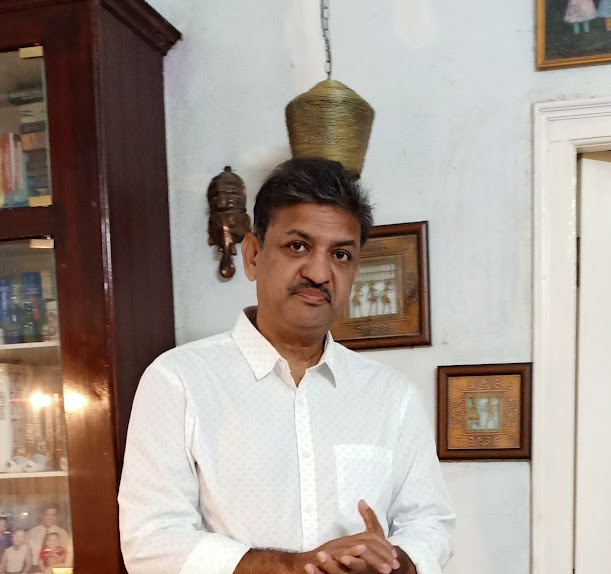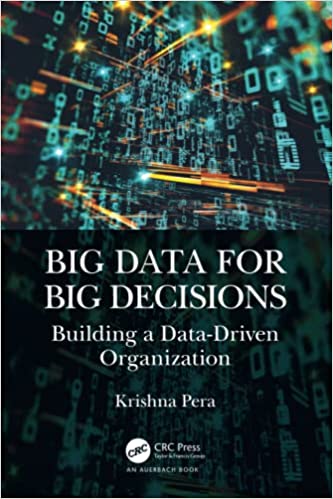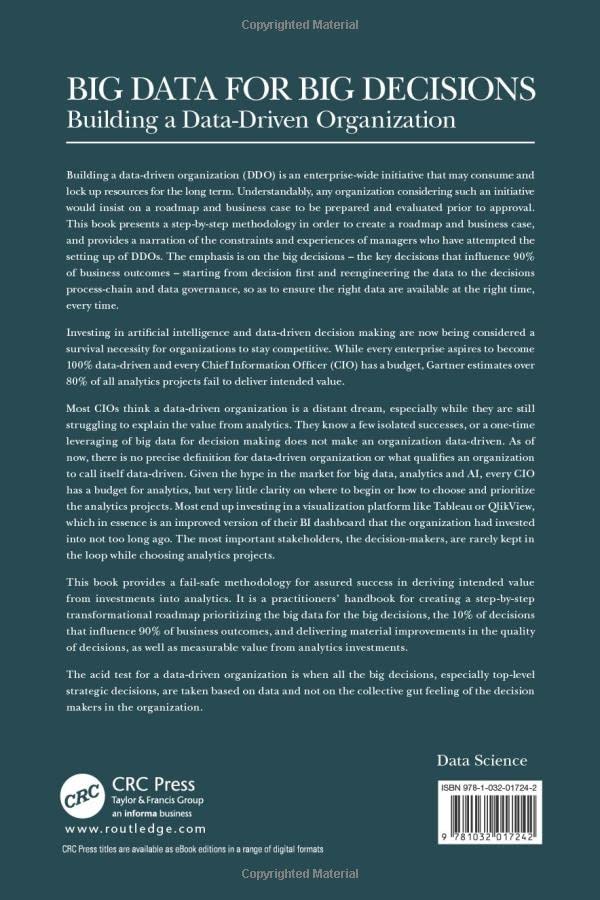Alumni Author: Big Data Big Decisions – Krishna Pera, PGP 1992
Mr. Krishna Pera, describes himself as an accidental writer, yet his work and book have made an impression on readers. Big Data Big Decisions, his latest book, is guaranteed to resonate with all working professionals. This book contains something for everyone interested in learning more about analytics investing and data.
This book is intended to assist in identifying and prioritising the most significant potential for cost savings, increased sales, increased visibility and control, and foreseeing and averting issues. The emphasis is on developing a repeatable self-priming process model to support the large analytical choices.
With over three decades of expertise, Mr. Pera is bringing transformational knowledge to this book. In this conversation, we discuss his most recent book and more.
Please tell us something about yourself.

I am from 1990-92 batch at IIM Bangalore; 30+ years in the Industry. Most of it is in IT and Business Transformation consulting. Multiple roles in eight different companies. Was the Head of Global Business Services for Singapore-listed Food & Agribusiness major, Olam Intl. in my last role. Was the COO of Murugappa Group-owned digital-content services KPO before that. I currently run a consulting entity focused on analytics and data-driven decisions, building a couple of Tech-products – a data-driven marketing solution & and the other for building a network of online Food Co-ops.
For more please see my profile on Amazon.
Can you please tell us about your latest book – Big Data for Big Decisions – Building a Data-driven Organization?
This book guides enterprises in their journey towards becoming data-driven organizations; a practitioners’ handbook for creating a step-by-step transformational roadmap, prioritizing bigdata-for big-decisions- the key decisions that influence 90% of business outcomes, and actually delivering value from analytics investments.
This is the first and the only book that provides you with a methodology for creating and transformational roadmap & business case for a data-driven organization.
Gartner estimates over 80% of all analytics projects fail to deliver the intended value. For those CIOs struggling to explain the business value from analytics: a failsafe methodology for assured success in deriving intended value from investments into analytics, and ‘material’ improvements in quality of decisions. This book covers a variety of hitherto rarely discussed topics encompassing the entire data-to-decisions lifecycle.
What kind of readership will benefit from this book? Who is the book for?
This book is written for everyday managers, not just data scientists and techies. Organizations have two kinds of stakeholders, those who consume information (which is essentially data +insights), and those who produce, curate and distribute information – The IT guys. This book is useful for both.
The book will be helpful for serious students of data science and researchers as well.
What persuaded you to write a book on this subject?
I published a series of articles in Data-Science-Central on this subject between 2016-19; The articles were well received with thousands of views & tweets, and were frequently cited by top consulting firms & data scientists.
Someone representing the publishing house approached me to check if I would be interested in writing a book on the subject in 2021, just before the Covid lockdown. A happy accident, I guess!
What efforts went into writing this book?
Substantial research: more grueling than I imagined. I had to read dozens of books, and several hundreds of articles and whitepapers on the subject. I must have cited over a hundred articles in the book. The lockdown helped.


The book promises to have a fail-safe method to benefit from investments in analytics. Can you please elaborate?
Analytics projects fail essentially because the projects are chosen and designed poorly – targeting unknown-unknowns (explained in the book).
The acid test for a data-driven organization is when all CXO-level strategic decisions are taken based on data and, where possible, with an audit-trail. This book helps:
- Focus the analytics efforts on the top 10% of the decisions that influence 90% of the business outcomes – The big decisions.
- Prioritize analytics investments that vastly improve the insights, and thereby substantially improve the quality of each of the big-decisions.
- Reengineer the data to decisions process-chain and the Data Governance – ensuring the right data is available at the right time, every time.
This book intends to help identify and prioritize the biggest opportunities for cost-saving, selling more, build visibility and control, foresee and preventing problems. The emphasis is on creating a repeatable self-priming process model to support the big decisions for analytics.
What have you enjoyed most about putting the book together? Any special experience that you would like to share?
Most of the core chapters were reviewed by James Taylor, a well-known author and considered an authority on digital decisioning. I have been corresponding with him over the last few years, but I was unsure if I could trouble him. But he was more than willing; and in fact, he took out time for one of the chapters even while he was on a vacation.
Again lockdown was a blessing…While I could not meet and interview anyone in person, most of them were relatively free for a zoom-chat.
What is your favorite chapter in the book and why?
Not sure if there is one favorite. However, there are few, which bring out ideas that were never adequately researched before. The chapter titled “Knowns, Unknowns and the elusive value from Analytics” was one such. The concepts of data manifest, theory of asymmetric information, the data gap, data lake-house etc., were brand new ideas.
Are you planning to write a book extending to the subject or on some other business topic?
I am considering writing books on two related topics –
- Data-driven decision making in Justice delivery system – Legal analytics.
- Supply-chain & Service-chain analytics
Am also deeply interested in ancient Indian history and mythology. Still wondering if I should attempt a book in other genres.
What is the one aspect that you enjoy most about writing?
Writing what I know from my experience is easy and relaxing. Researching and commenting on what others have written is exhausting.
A hobby that you like to follow in your spare time.
I read all kinds of books. I love reading popular fiction & I still read comics.
A book you are currently reading.
A translation of Ponniyin Selvan. Planning to reread the Foundation series by Asimov before I watch it on Apple TV.


